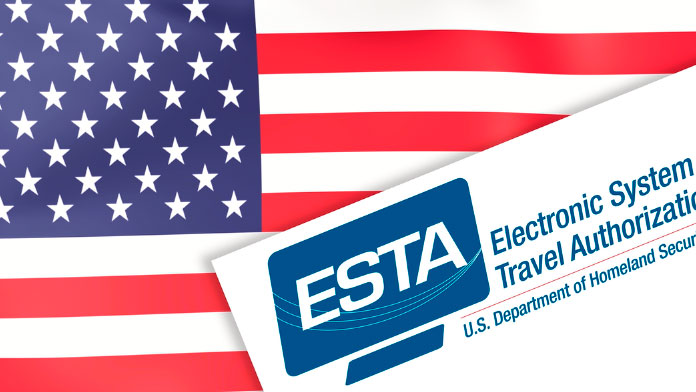Citizens included in Visa Free Program (Visa Waiver Program, VWP) has the possibility to get a Travel Authorization through Electronic Travel Authorization System (Electronic System for Travel Authorization, ESTA), which must be approved prior to your travel to the United States.
ESTA allows you to travel to the United States for tourism, business or transit, for a period of up to 90 days without the need to obtain a Visa.
The countries currently included in the Visa Waiver Program are as follows: Germany, Andorra, Australia, Austria, Belgium, Brunei, Chile, South Korea, Denmark, Slovakia, Slovenia, SpanishEstonia, Finland, France, Greece, Hungary, Ireland, Iceland, Italy, Japan, Latvia, Liechtenstein, Lithuania, Luxembourg, Malta, Monaco, Norway, New Zealand, Netherlands, Portugal, United Kingdom, Czech Republic, San Marino, Singapore , Sweden, Switzerland and Taiwan.
Cuba’s inclusion in the list «State Sponsors of Terrorism» (State Sponsorship of Terrorism, SSOT) by the Trump Administration on January 12, 2021, and its renewal by the Biden Administration on February 28, 2023, have had legal impact on individuals who have been in Cuba, and who now wish to travel to the United States with ESTA.
The United States Department of State prohibits people who have been in countries designated as sponsors of terrorism from traveling with ESTA, requiring them to apply for a Visa to travel to the United States.
At that time, the list of countries designated as sponsors of terrorism included: North Korea (Democratic People’s Republic of Korea), Iran (Islamic Republic of Iran), Syria (Syrian Arab Republic) and Cuba (Republic of Cuba).
Due to the large number of Spanish nationals and residents in Spain who have been in Cuba for tourism, business or family reasons, and who now require a Visa to travel to the United States, this has resulted in a delay of over a year in obtaining a visa. interview appointment at the United States Embassy in Madrid to obtain a B1 Business Visa or B2 Tourist Visa.
In this situation, there are several legal alternatives:
- Application for B1 Business Visa or B2 Tourist Visa at other Consulates: It is possible to apply for a Visa at a United States Consulate that accepts Visa applications from non-residents in that consular jurisdiction.
- Application for other types of Visa: Section 101(a)(15)(E) of the Immigration and Nationality Act (“Immigration and Naturalization Law”) regulates E1 Trade or Service Visas and E2 Investment Visas that can be obtained by citizens of countries where the United States has signed a Trade and Navigation Agreement.
Spain, since April 14, 1903, is part of the list of 80 countries that currently maintain the Treaty of Commerce and Navigation signed with the United States.
To qualify and get a Trade/Services Visa E1the following requirements must be met:
- The company for which an E1 Visa is applied must be owned largely by Spanish shareholders, i.e., the individual or legal entity (and in this case their ultimate beneficiary) has Spanish citizenship, that is, owns 51% or more of the shares of the company.
- The company for which an E1 Visa is applied must carry out the majority (more than 50%) of trade or service activities between Spain and the United States, and this activity must represent a “substantial” volume of trade or services between Spain and the United States. United States of America.
- The recipient of the E1 Visa must be of Spanish nationality and with respect to the company’s activities must develop supervisory or executive functions; or deemed specialists or other qualified personnel essential and necessary for the company’s operations in the United States.
To qualify and get a Investment Visa E2 the following requirements must be met:
- The company for which an E2 Visa is applied must be owned in large part by Spanish shareholders, i.e., the individual or legal entity (and in this case their ultimate beneficiary) is of Spanish nationality, i.e., owns 51% or more of the shares of the company.
- A company for which an E2 Visa is applied can develop any type of business activity, as long as it is a “substantial” investment, with “risk” and not “marginal” being made in the company by its shareholders, whether they are individuals or legal entities.
- The recipient of the E1 Visa must be of Spanish nationality and with respect to the company’s activities must develop supervisory or executive functions; or deemed specialists or other qualified personnel essential and necessary for the company’s operations in the United States.
Interview Appointments for E1 Trade or Service Visas and for E2 Investment Visas can currently be obtained at the United States Embassy in Madrid, in less than three months.
If the decision is made to proceed with the ESTA application, it should be noted that providing false or misleading information about the ESTA application can have serious legal consequences:
1. Entry denial: If it is proven that false information has been provided on the ESTA application and that authorization has been granted based on that information, entry to the United States may be denied. Customs and immigration officials have the authority to deny entry if they believe fraud or counterfeiting has been involved.
2. Future ban: Lying on the ESTA application could lead to future barriers to visiting the United States. Depending on the severity of the fraud or forgery, the ban may be temporary or even permanent.
3. Legal actions: Providing false information in an ESTA application can be a criminal offense with legal consequences which can include criminal charges for fraud or falsification of documents, which can result in imprisonment, fines or other legal sanctions.

“Entrepreneur. Internet fanatic. Certified zombie scholar. Friendly troublemaker. Bacon expert.”


:quality(85)/cloudfront-us-east-1.images.arcpublishing.com/infobae/AMRMWFE47ZGLRAZ2KNWCYXWBW4.jpg)




